Think Inside The Box: Pfizer Will Use Cytiva’s Mobile Biotech Factory To Make Next-Generation Drugs In China
Americans and Europeans are most likely to die from heart disease. But in China, the leading cause of death is cancer. The disease killed nearly 3 million Chinese in 2015 alone and the country’s doctors have few drugs available to fight the epidemic. As grim as the numbers look, they could soon start changing. That’s because healthcare reforms recently enacted by the Chinese government support local production of a next-generation class of drugs called biopharmaceuticals and new, flexible drug production methods.
Global pharma companies like Pfizer Inc. are paying attention. The New York City-based drug maker recently announced it would build a new $350 million China Biotechnology Center focused on manufacturing biopharmaceuticals. Unlike ibuprofen with its simple chemical formula, biopharmaceuticals, also called biologics, are a class of medicines made from strings of complex living proteins that are used as therapies for ailments as different as autoimmune disorders, diabetes and, of course, cancer.
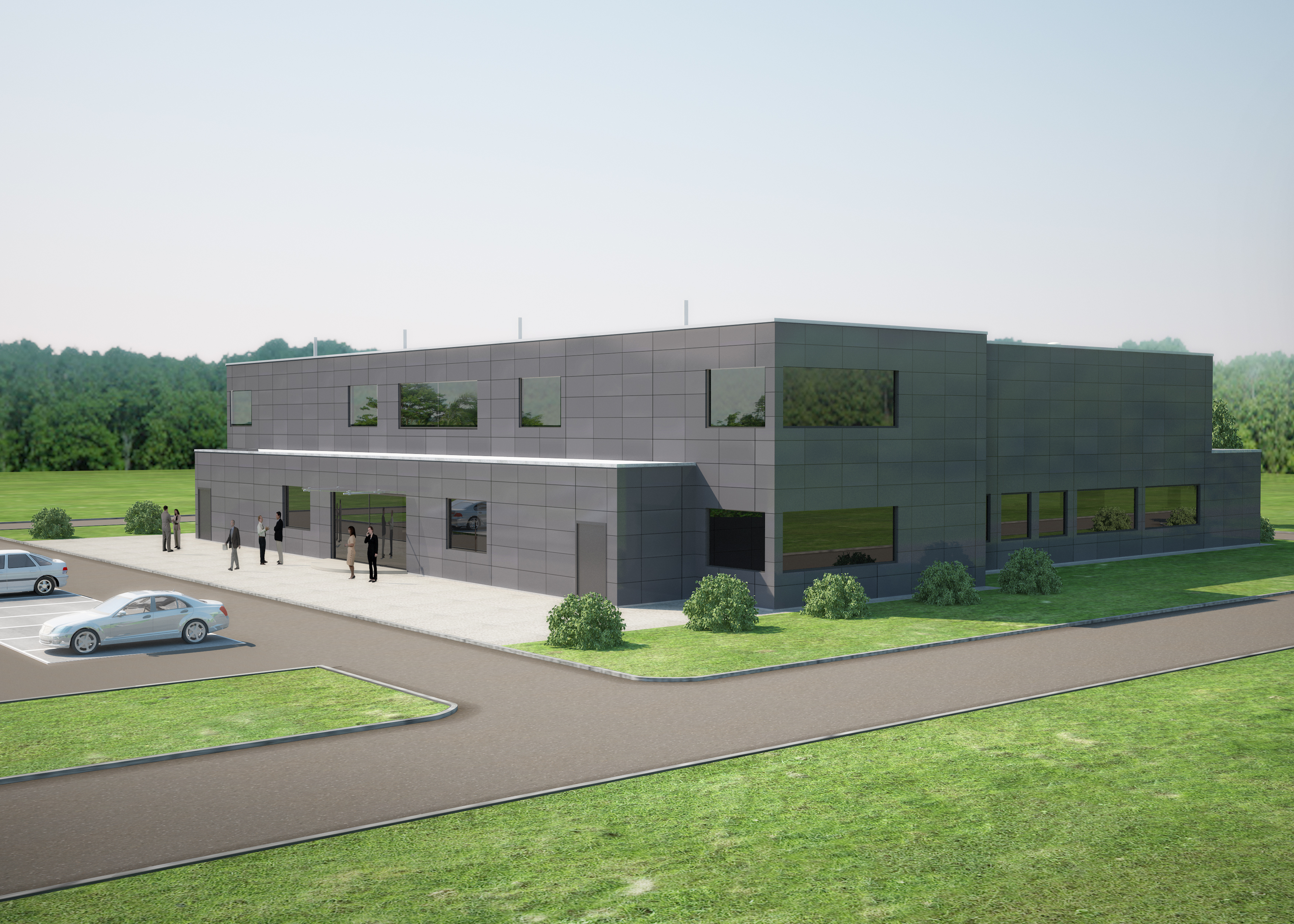
Above: Pfizer’s new biotechnology center in China will be ready in 2018. Image credit: Pfizer. Top: Biologics account only for 4 percent of the medicines prescribed in China, compared with 22 percent in the United States. KUBio can help increase their reach.
Biologics, which are manufactured in bioreactors from living cells, have mainly been available in wealthy countries. The new center is aiming to change that. It will use KUBio, an innovative prefabricated factory on wheels for making biologics developed by Cytiva. KUBio’s 62 portable modules come equipped with single-use bioprocessing technologies as well as the walls needed to enclose them. Cytiva can deliver the plant to locations where it might otherwise take years to build a traditional biopharma facility.
The KUBio at Pfizer’s center in Hangzhou, China, will be ready in 2018. The facility will be the drug maker’s third global biotechnology center, and its first in Asia, to make biologics and biosimilars, licensed and highly similar drugs to already-approved biologic medicines. “The local production of high-quality, affordable biosimilar medicines will have the potential to significantly improve the lives of patients not only in China but across the world,” says Tony Maddaluna, Pfizer’s president of global supply.
Pfizer says it chose a KUBio because it can help slash factory construction time in half, to 18 months from three years. The design also costs 25 percent to 50 percent less than building a traditional factory. The facility’s operation is also less harmful to the environment, reducing CO2 emissions by 75 percent and water and energy use by 80 percent.
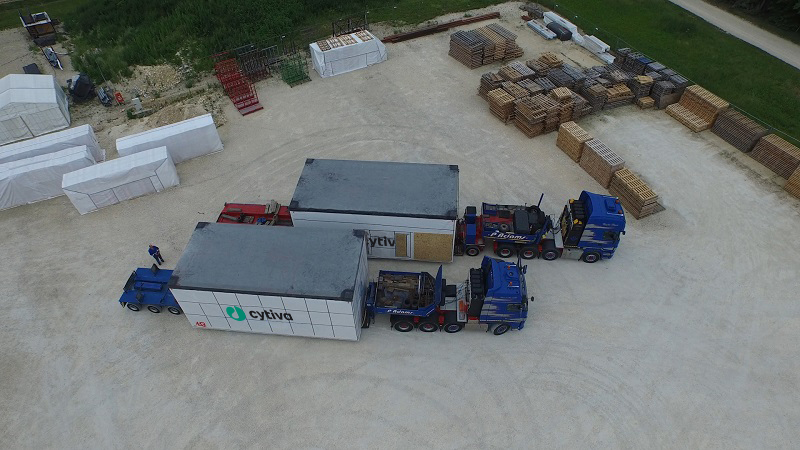
Pfizer says it chose a KUBio because it can help slash factory construction time in half, to 18 months from three years. The design also costs 25 percent to 50 percent less than building a traditional factory.
Biologics account only for 4 percent of the medicines prescribed in China, compared with 22 percent in the United States. The number of Chinese people who could be treated with biologic and biosimilar therapies could increase to 80 percent by 2035, according to a report by Frost & Sullivan. The firm’s forecast has China’s biologics market reaching $9.32 billion in 2018 from $4.06 billion in 2013.
Pfizer’s KUBio will make biologics in multiple 2,000-liter single-use bioreactors. Making drugs in single-use disposable plastic bags in reusable containers eliminates costly cleaning and sterilization and makes the plant more efficient. The factory can also quickly switch between drugs, allowing Pfizer to make new biopharma drugs should the need arise.
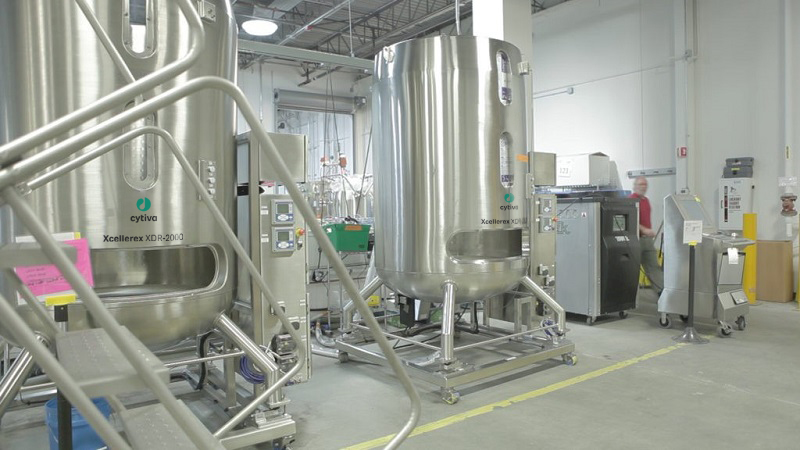
Pfizer’s KUBio will make biologics in multiple 2,000-liter single-use bioreactors (see above).
The KUBio modules are manufactured in Germany and the equipment inside comes from the United States and Sweden. “The KUBio modular factory allows biopharmaceutical companies to get their products to market quickly so they can respond rapidly to local healthcare needs,” says Kieran Murphy, chief executive and president of Cytiva.
While most biotech factories are still built using conventional methods and based on stainless-steel equipment, the KUBio modules arrive 80 percent to 90 percent pre-equipped. The units include heating, ventilation and air handling systems, the clean room, most of the utility equipment, and all of the piping needed to run the plant
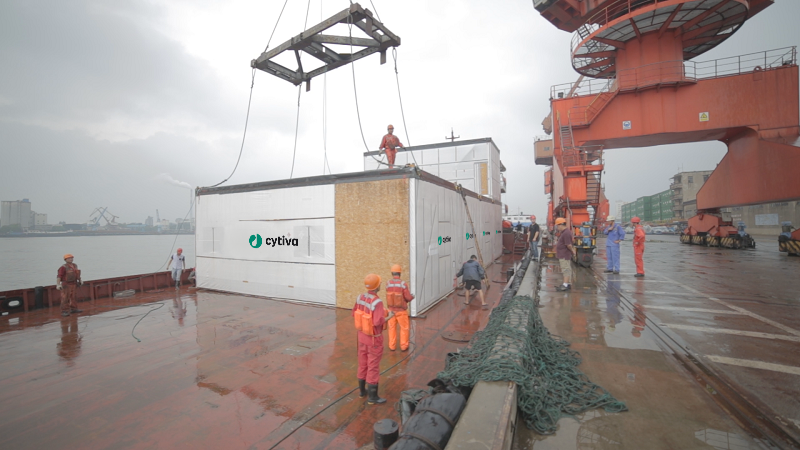
KUBio’s 62 portable modules come equipped with single-use bioprocessing technologies as well as the walls needed to enclose them.
The Chinese government is targeting biotechnology as part of its efforts to shift its manufacturing away from low-cost goods to high-value, high-tech products. In fact, the Chinese pharma company JHL Biotech opened its own KUBio plant in May in Wuhan, China.
Of the top 10 therapeutics on the market today, seven are biopharmaceuticals, according to Genetic Engineering & Biotechnology News. These drugs are about to become even more commonplace — more than 5,000 biologic drug candidate products are in development. [1] The global market for these medicines is more than $170 billion and is growing 15 percent to 18 percent annually. [2] Biologics include synthetic insulin as well as medicines that battle rheumatoid arthritis, cancer and other diseases.
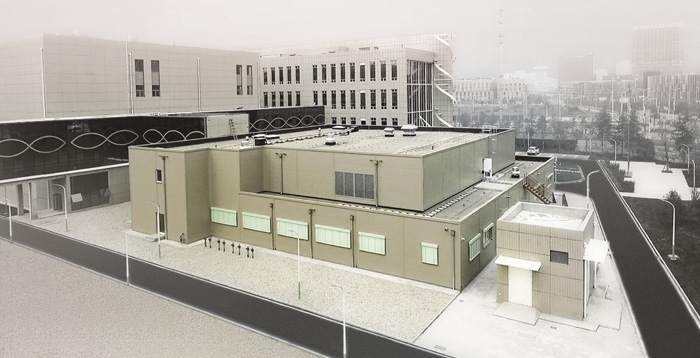
The Chinese pharma company JHL Biotech opened its own KUBio plant in May in Wuhan, China.
[1, 2] Source: BIOPLAN ASSOCIATES, INC, Report and Survey of Biopharmaceutical Manufacturing Capacity and Production, Apr 2012)